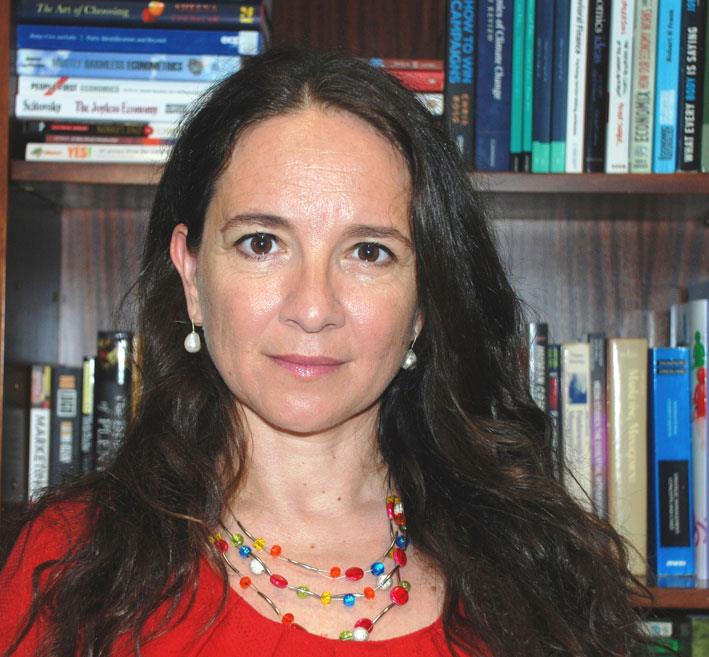Last week, a post by blogger Glenn Bedingfield, in which the Nationalist Party executive president Ann Fenech was ridiculed for not having properly shaved under her arms, raised eyebrows on Facebook, prompting one young woman to voice her opinion on what she deemed to be an offensive and sexist comment. Bedingfield’s post was subsequently taken down the following day.
Sexism throughout the campaign
With this, perhaps, being just one episode in an election campaign which has repeatedly come under scrutiny for its potentially sexist undertones – alongside electoral pledges to improve gender equality – The Malta Independent contacted academics Dr Marie Briguglio and Dr Andrea Dibben, together with Mrs Renee Laiviera, Commissioner for the National Commission for the Promotion of Equality (NCPE), in order to gain their perspectives on the subject.
When asked whether they had noted any sexism throughout the election campaign (from any political party), Dr Briguglio, a university lecturer in economics and academic who is actively vocal about women's rights, observed shortcomings in expectations when it comes to leadership roles.
“There seems to be the expectation for leaders to be macho men,” she told this newspaper. “I see sexist attitudes when women with leadership traits are berated and gentle men are ridiculed. Personally, I find nothing more attractive in a leader than gentleness,” she said.

Dr Dibben (above), an academic and full-time lecturer within the Department of Social Policy and Social Work, said that she “deplores these [sexist comments] without reservation.
“I am also concerned about a culture that considers such comments ‘acceptable’,” she added.
Mrs Laiviera said that the commission she heads “condemns sexism.”
“Political parties should avoid gender stereotypes in their campaigns and promote the involvement of women in politics and other spheres.” She added that “political parties can also safeguard equal opportunities for male and female candidates by giving them equal visibility throughout the electoral campaign.”

Electoral pledges
Pledges made by the Labour Party relating to women’s rights include extending child care services to the evening, gender quotas in higher institutions, the provision of baby starter kits, and maternity leave distributed between the mother and father, which could also be distributed throughout a period of time.
Nationalist Party/Democratic Party pledges include free child care services for everyone, paternity leave in addition to maternity leave, the promotion of telecommuting to increase the presence of women on company boards, and the creation of a holistic response team for domestic violence.
Overall, all three women seemed satisfied with the parties’ pledges to advance women’s rights.
Dr Briguglio (above) added that “the horrifically long working hours of some men also needs to be addressed.” Dr Dibben emphasised the importance of proposals being backed by research. “It is important for any proposal to be based on research and evidence, and to ensure that stakeholders are consulted in the implementation process. Services should also be routinely evaluated. That is what will ultimately make a difference,” she added.
Mrs Laiviera said that the NCPE encourages “crucial” measures which help reconcile work and family life, along with initiatives that encourage more women and men to enter or remain in the labour market, promote equal distribution of family-friendly measures and care responsibilities, and foster economic independence.”

Females in political parties
Of the 70 Labour Party candidates contesting the upcoming general election, 11 are female (16%), while 24 out of the 102 candidates fielded by the Nationalist Party are female (24%), and 4 out of the 11 Democratic Party candidates (36%) are female.
Mrs Laiviera commented that “the number of female candidates is very low.”
“A pro-active effort by political parties to break gender stereotypes and promote a balanced female participation in the party structures at all levels, as well as more family-friendly arrangements and support structures within parties, is essential to improve participation of the under-represented sex,” she said.
Dr Briguglio emphasised that women in parliament are needed “not just for gender issues, but for agenda items that suffer when representation is skewed.”
Dr Dibben said that the number of female candidates standing for election “is unacceptable, and it is a clear sign that political parties have not given gender parity enough prominence.”